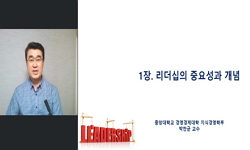간호업무환경, 윤리적 리더십, 조직의사소통이 종합병원 간호사가 인지하는 JUST CULTURE에 미치는 영향 본 연구는 종합병원 간호사의 간호업무환경, 윤리적 리더십, 조직의사소통 및 Just cultu...
http://chineseinput.net/에서 pinyin(병음)방식으로 중국어를 변환할 수 있습니다.
변환된 중국어를 복사하여 사용하시면 됩니다.
- 中文 을 입력하시려면 zhongwen을 입력하시고 space를누르시면됩니다.
- 北京 을 입력하시려면 beijing을 입력하시고 space를 누르시면 됩니다.
간호업무환경, 윤리적 리더십, 조직의사소통이 종합병원 간호사가 인지하는 JUST CULTURE에 미치는 영향 = The Effects of Nursing Work Environment, Ethical Leadership, and Organizational Communication on Just Culture Perceived by Nurses in General Hospitals
한글로보기https://www.riss.kr/link?id=T17198263
- 저자
-
발행사항
포천 : 차의과학대학교 일반대학원, 2024
-
학위논문사항
학위논문(석사) -- 차의과학대학교 일반대학원 , 간호학과 , 2025. 2
-
발행연도
2024
-
작성언어
한국어
-
주제어
간호업무환경 ; 윤리적 리더십 ; 조직의사소통 ; JUST CULTURE
-
발행국(도시)
경기도
-
형태사항
26 cm
-
일반주기명
지도교수: 유소영
-
UCI식별코드
I804:41065-200000861840
- 소장기관
-
0
상세조회 -
0
다운로드
부가정보
국문 초록 (Abstract)
본 연구는 종합병원 간호사의 간호업무환경, 윤리적 리더십, 조직의사소통 및 Just culture의 정도를 파악하고, Just culture에 미치는 영향을 확인함으로써 간호사의 간호업무환경, 윤리적 리더십, 조직의사소통과 Just culture의 수준 향상을 위한 기초자료를 제공하고자 시도된 서술적 상관관계 조사 연구이다.
자료 수집은 2024년 09월 26일부터 2024년 10월 20일까지 경기도 소재 A종합병원, B종합병원 및 C여성병원과 서울시 소재 D종합병원을 비롯한 총 7개 병원에 재직 중인 간호사 202명을 편의표집 하였으며, 응답내용의 결측자료가 있거나 대상자 선정조건에 부합하지 않은 설문지를 제외한 199명의 설문지가 최종 분석되었다. 본 연구에서 간호업무환경은 Lake(2002)가 개발하여 조은희 등(2011)이 번안한 도구를 이용하였으며, 윤리적 리더십은 Kalshoven 등(2011)이 개발하여 김정언 등(2015)이 번안한 도구를 이용하였고, 조직의사소통은 Downs와 Hazen(1977)이 개발하여 홍은미(2007)가 수정·보완한 도구를 이용하였다. Just culture는 Petschonek 등(2013)이 개발하고 이가선(2020)이 번안하고 타당도를 검토받은 도구를 이용하여 측정하였다.
수집된 자료는 SPSS/WIN 25.0 프로그램을 이용하여 기술통계로 일반적 특성을 분석하였고 일반적 특성에 따른 간호업무환경, 윤리적 리더십, 조직의사소통 및 Just culture 차이는 t-test, ANOVA로 분석하고 Scheffe test로 사후 검정하였다. 변수 간의 상관관계는 Pearson’s correlation coefficient로 분석하였고, Just culture에 영향을 주는 요인은 Multiple regression analysis를 실시하여 확인하였다. 연구 결과는 다음과 같다.
1) 간호업무환경은 4점 만점에 평균 2.61±0.36점, 윤리적 리더십은 5점 만점에 평균 3.44±0.59점, 조직의사소통은 5점 만점에 평균 3.25±0.48점, Just culture 수준은 7점 만점에 평균 5.02±0.66점으로 측정되었다.
2) 일반적 특성에 따른 간호업무환경은 연령(F=3.978, p=.020)과 현 근무경력(F=3.191, p=.025)에서 통계적으로 유의미한 차이가 있는 것으로 확인되었다.
3) 상관관계 분석결과 간호업무환경과 윤리적 리더십(r=.695, p<.001), 간호업무환경과 조직의사소통(r=.717, p<.001), 간호업무환경과 Just culture(r=.587, p<.001), 윤리적 리더십과 조직의사소통(r=.650, p<.001), 윤리적 리더십과 Just culture(r=.686, p<.001), 조직의사소통과 Just culture(r=.621, p<.001) 모두 통계적으로 유의한 양(+)의 상관관계를 보였다.
4) 다중회귀분석 결과 윤리적 리더십(β=.460, p<.001)과 조직의사소통(β=.268, p<.001)이 Just culture에 통계적으로 유의한 영향을 주는 것으로 나타났으며, 종속변수 Just culture를 설명하는 설명력은 51.8%로 확인되었다.
이상의 연구 결과를 종합하여 볼 때, 간호사의 Just culture 인식을 높이기 위하여 윤리적 리더십 및 조직의사소통 향상을 위한 중재 전략과 교육 프로그램을 개발하고 적용 및 효과검증이 이루어져야 할 것이며, 또한 Just culture 수준 향상을 위해 영향을 미치는 다양한 변수를 포함한 후속 연구를 독려할 필요가 있다.
핵심되는 말 : 간호업무환경, 윤리적 리더십, 조직의사소통, Just culture
간호업무환경, 윤리적 리더십, 조직의사소통이 종합병원 간호사가 인지하는 JUST CULTURE에 미치는 영향
본 연구는 종합병원 간호사의 간호업무환경, 윤리적 리더십, 조직의사소통 및 Just culture의 정도를 파악하고, Just culture에 미치는 영향을 확인함으로써 간호사의 간호업무환경, 윤리적 리더십, 조직의사소통과 Just culture의 수준 향상을 위한 기초자료를 제공하고자 시도된 서술적 상관관계 조사 연구이다.
자료 수집은 2024년 09월 26일부터 2024년 10월 20일까지 경기도 소재 A종합병원, B종합병원 및 C여성병원과 서울시 소재 D종합병원을 비롯한 총 7개 병원에 재직 중인 간호사 202명을 편의표집 하였으며, 응답내용의 결측자료가 있거나 대상자 선정조건에 부합하지 않은 설문지를 제외한 199명의 설문지가 최종 분석되었다. 본 연구에서 간호업무환경은 Lake(2002)가 개발하여 조은희 등(2011)이 번안한 도구를 이용하였으며, 윤리적 리더십은 Kalshoven 등(2011)이 개발하여 김정언 등(2015)이 번안한 도구를 이용하였고, 조직의사소통은 Downs와 Hazen(1977)이 개발하여 홍은미(2007)가 수정·보완한 도구를 이용하였다. Just culture는 Petschonek 등(2013)이 개발하고 이가선(2020)이 번안하고 타당도를 검토받은 도구를 이용하여 측정하였다.
수집된 자료는 SPSS/WIN 25.0 프로그램을 이용하여 기술통계로 일반적 특성을 분석하였고 일반적 특성에 따른 간호업무환경, 윤리적 리더십, 조직의사소통 및 Just culture 차이는 t-test, ANOVA로 분석하고 Scheffe test로 사후 검정하였다. 변수 간의 상관관계는 Pearson’s correlation coefficient로 분석하였고, Just culture에 영향을 주는 요인은 Multiple regression analysis를 실시하여 확인하였다. 연구 결과는 다음과 같다.
1) 간호업무환경은 4점 만점에 평균 2.61±0.36점, 윤리적 리더십은 5점 만점에 평균 3.44±0.59점, 조직의사소통은 5점 만점에 평균 3.25±0.48점, Just culture 수준은 7점 만점에 평균 5.02±0.66점으로 측정되었다.
2) 일반적 특성에 따른 간호업무환경은 연령(F=3.978, p=.020)과 현 근무경력(F=3.191, p=.025)에서 통계적으로 유의미한 차이가 있는 것으로 확인되었다.
3) 상관관계 분석결과 간호업무환경과 윤리적 리더십(r=.695, p<.001), 간호업무환경과 조직의사소통(r=.717, p<.001), 간호업무환경과 Just culture(r=.587, p<.001), 윤리적 리더십과 조직의사소통(r=.650, p<.001), 윤리적 리더십과 Just culture(r=.686, p<.001), 조직의사소통과 Just culture(r=.621, p<.001) 모두 통계적으로 유의한 양(+)의 상관관계를 보였다.
4) 다중회귀분석 결과 윤리적 리더십(β=.460, p<.001)과 조직의사소통(β=.268, p<.001)이 Just culture에 통계적으로 유의한 영향을 주는 것으로 나타났으며, 종속변수 Just culture를 설명하는 설명력은 51.8%로 확인되었다.
이상의 연구 결과를 종합하여 볼 때, 간호사의 Just culture 인식을 높이기 위하여 윤리적 리더십 및 조직의사소통 향상을 위한 중재 전략과 교육 프로그램을 개발하고 적용 및 효과검증이 이루어져야 할 것이며, 또한 Just culture 수준 향상을 위해 영향을 미치는 다양한 변수를 포함한 후속 연구를 독려할 필요가 있다.
핵심되는 말 : 간호업무환경, 윤리적 리더십, 조직의사소통, Just culture
다국어 초록 (Multilingual Abstract)
This study is a descriptive correlational research that aims to assess the nursing work environment, ethical leadership, organizational communication, and the level of Just Culture among nurses in general hospitals. By examining the factors affecting Just Culture, the study intends to provide foundational data for improving the levels of the nursing work environment, ethical leadership, organizational communication, and Just Culture.
Data collection was carried out from September 26 to October 20, 2024, through convenience sampling of 202 nurses working at seven hospitals, including A General Hospital, B General Hospital, C Women's Hospital in Gyeonggi Province, and D General Hospital in Seoul. After excluding incomplete responses and questionnaires that did not meet the inclusion criteria, 199 questionnaires were finally analyzed. The nursing work environment was measured using a tool developed by Lake (2002) and adapted by Jo Eun-hee et al. (2011), ethical leadership was measured with a tool developed by Kalshoven et al. (2011) and adapted by Kim Jeong-eon et al. (2015), organizational communication was measured using a tool developed by Downs and Hazen (1977) and modified by Hong Eun-mi (2007), and Just Culture was measured using a tool developed by Petschonek et al. (2013) and adapted and validated by Lee Ga-seon (2020).
The collected data were analyzed using descriptive statistics to assess the general characteristics, and differences in the nursing work environment, ethical leadership, organizational communication, and Just Culture were analyzed using t-tests, ANOVA, and post-hoc tests (Scheffe). Correlations between variables were analyzed using Pearson's correlation coefficient, and factors influencing Just Culture were identified through multiple regression analysis. The results of the study are as follows:
1) The average score for the nursing work environment was 2.61±0.36 on a 4-point scale, for ethical leadership was 3.44±0.59 on a 5-point scale, for organizational communication was 3.25±0.48 on a 5-point scale, and the Just Culture level was 5.02±0.66 on a 7-point scale.
2) The nursing work environment showed statistically significant differences based on age (F=3.978, p=.020) and current work experience (F=3.191, p=.025).
3) Correlation analysis revealed significant positive correlations between the nursing work environment and ethical leadership (r=.695, p<.001), the nursing work environment and organizational communication (r=.717, p<.001), the nursing work environment and Just Culture (r=.587, p<.001), ethical leadership and organizational communication (r=.650, p<.001), ethical leadership and Just Culture (r=.686, p<.001), and organizational communication and Just Culture (r=.621, p<.001).
4) Multiple regression analysis indicated that ethical leadership (β=.460, p<.001) and organizational communication (β=.268, p<.001) had statistically significant influences on Just Culture, explaining 51.8% of the variance in Just Culture.
In conclusion, the findings suggest that interventions and educational programs aimed at improving ethical leadership and organizational communication should be developed and implemented to enhance nurses' perceptions of Just Culture. Further research that includes various factors influencing Just Culture is also recommended for improving its level.
Keywords : Nursing Work Environment, Ethical Leadership, Organizational Communication, Just Culture
The Effects of Nursing Work Environment, Ethical Leadership, and Organizational Communication on Just Culture Perceived by Nurses in General Hospitals This study is a descriptive correlational research that aims to assess the nursing work environmen...
The Effects of Nursing Work Environment, Ethical Leadership, and Organizational Communication on Just Culture Perceived by Nurses in General Hospitals
This study is a descriptive correlational research that aims to assess the nursing work environment, ethical leadership, organizational communication, and the level of Just Culture among nurses in general hospitals. By examining the factors affecting Just Culture, the study intends to provide foundational data for improving the levels of the nursing work environment, ethical leadership, organizational communication, and Just Culture.
Data collection was carried out from September 26 to October 20, 2024, through convenience sampling of 202 nurses working at seven hospitals, including A General Hospital, B General Hospital, C Women's Hospital in Gyeonggi Province, and D General Hospital in Seoul. After excluding incomplete responses and questionnaires that did not meet the inclusion criteria, 199 questionnaires were finally analyzed. The nursing work environment was measured using a tool developed by Lake (2002) and adapted by Jo Eun-hee et al. (2011), ethical leadership was measured with a tool developed by Kalshoven et al. (2011) and adapted by Kim Jeong-eon et al. (2015), organizational communication was measured using a tool developed by Downs and Hazen (1977) and modified by Hong Eun-mi (2007), and Just Culture was measured using a tool developed by Petschonek et al. (2013) and adapted and validated by Lee Ga-seon (2020).
The collected data were analyzed using descriptive statistics to assess the general characteristics, and differences in the nursing work environment, ethical leadership, organizational communication, and Just Culture were analyzed using t-tests, ANOVA, and post-hoc tests (Scheffe). Correlations between variables were analyzed using Pearson's correlation coefficient, and factors influencing Just Culture were identified through multiple regression analysis. The results of the study are as follows:
1) The average score for the nursing work environment was 2.61±0.36 on a 4-point scale, for ethical leadership was 3.44±0.59 on a 5-point scale, for organizational communication was 3.25±0.48 on a 5-point scale, and the Just Culture level was 5.02±0.66 on a 7-point scale.
2) The nursing work environment showed statistically significant differences based on age (F=3.978, p=.020) and current work experience (F=3.191, p=.025).
3) Correlation analysis revealed significant positive correlations between the nursing work environment and ethical leadership (r=.695, p<.001), the nursing work environment and organizational communication (r=.717, p<.001), the nursing work environment and Just Culture (r=.587, p<.001), ethical leadership and organizational communication (r=.650, p<.001), ethical leadership and Just Culture (r=.686, p<.001), and organizational communication and Just Culture (r=.621, p<.001).
4) Multiple regression analysis indicated that ethical leadership (β=.460, p<.001) and organizational communication (β=.268, p<.001) had statistically significant influences on Just Culture, explaining 51.8% of the variance in Just Culture.
In conclusion, the findings suggest that interventions and educational programs aimed at improving ethical leadership and organizational communication should be developed and implemented to enhance nurses' perceptions of Just Culture. Further research that includes various factors influencing Just Culture is also recommended for improving its level.
Keywords : Nursing Work Environment, Ethical Leadership, Organizational Communication, Just Culture
목차 (Table of Contents)
- 감사의 글 ⅰ
- 차례 ⅲ
- 그림 및 표 차례 ⅴ
- 국문요약 ⅵ
- 감사의 글 ⅰ
- 차례 ⅲ
- 그림 및 표 차례 ⅴ
- 국문요약 ⅵ
- I. 서론 1
- 1. 연구의 필요성 1
- 2. 연구의 목적 5
- 3. 용어의 정의 5
- II. 문헌고찰 9
- 1. JUST CULTURE 9
- 2. 간호업무환경 12
- 3. 윤리적 리더십 13
- 4. 조직의사소통 15
- 5. 이론적 틀 17
- III. 연구 방법 19
- 1. 연구 설계 19
- 2. 연구 대상 19
- 3. 연구 도구 21
- 4. 자료수집 절차 23
- 5. 윤리적 고려 24
- 6. 자료 분석 25
- IV. 연구 결과 27
- 1. 대상자의 특성 27
- 2. 대상자의 간호업무환경 29
- 3. 대상자의 윤리적 리더십의 정도 31
- 4. 대상자의 조직의사소통의 정도 33
- 5. 대상자의 Just culture의 정도 35
- 6. 대상자의 일반적 특성에 따른 차이 37
- 7. 간호업무환경, 윤리적 리더십, 조직의사소통, Just culture의 관계 41
- 8. 간호업무환경, 윤리적 리더십, 조직의사소통, Just culture에 미치는 영향 42
- V. 논의 44
- VI. 결론 및 제언 53
- 참고문헌 54
- 부 록 67
- 영문요약 83










